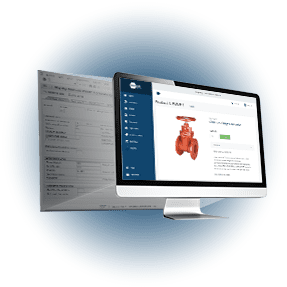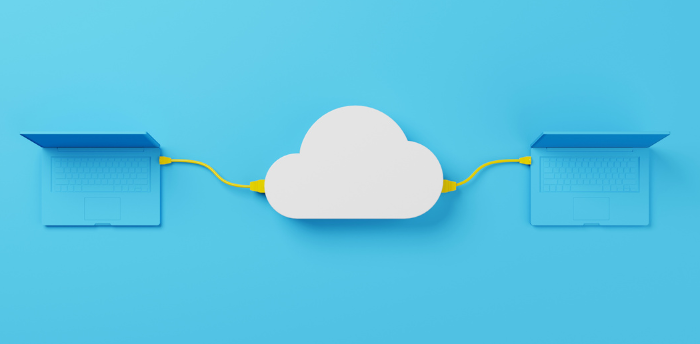Share
Author
George Anderson
Share
B2B marketplaces are experiencing skyrocketing growth. As DigitalCommerce360 reports, marketplace sales are projected to grow 130.1% in 2022, to $130 billion—up from $56.5 billion in 2021.
Clearly, B2B marketplaces are here to stay.
But what do they mean for manufacturers? Should you sell your products on Amazon Business or Alibaba? If so, how?
Here are 5 questions to ask as you define your relationship to B2B marketplaces.
1. How commoditized are your products?
Think of commoditization on a spectrum. At one end, you have highly commoditized products like nuts and bolts, raw lumber, or sodium bicarbonate (baking soda). There’s minimal difference between the offerings of competitors, and pricing and availability are the only ways to differentiate yourself.
At the other end of the spectrum, you have highly specialized products like industrial sensing equipment, hospital beds, or custom packaging for products. You differentiate with sophisticated features that support specialized applications.
At a high level, the less commoditized a product is, the less it’s a good fit for a B2B marketplace. Configurable attributes, federal regulation, and longer, guided sales cycles all contribute to the complexity of selling highly specialized products. Every market is different, but it’s worth considering how the simplicity of B2B marketplace selling maps to your sales cycle and the needs of your customers.
To put it simply, will anyone ever buy a federally regulated industrial machine for $1 million on Amazon Business? Probably not. 😉
But the screws, hoses, and lubricant that keep that machine running? Those are great candidates for selling on a B2B marketplace.
2. How much control do you need over the transaction?
Simply put, B2B marketplaces force you to give up control. The tradeoff is more exposure through sophisticated search algorithms—which you definitely want if your products are more commoditized.
However, in all cases, it’s worth considering how a B2B marketplace takes control of your transactions:
- You may lose visibility into customer identity
- You may lose control of the customer conversation
- The B2B marketplace, rather than your company, builds brand equity with the customer
- You lose control of margin
- You lose control of product recommendations
That last point is particularly concerning. If the B2B marketplace doesn’t have your product in stock, their algorithms will gladly show similar products from other manufacturers. The B2B marketplace doesn’t particularly care which product they sell—even if the user came looking for your specific, branded product. The marketplace just wants to capture and fulfill that demand.
Maybe that loss of control is worth it because you need marketplace visibility. Maybe it’s not a fit for your products. The key is to know your market, your value proposition, and what you stand to gain (or lose).
See this post for more: Amazon Business, Or Private B2B Web Shop?
3. How comfortable are you selling through a “frenemy?”
As you can see, B2B marketplaces may function as “frenemies” for manufacturers. They’re friends because they make it easy to put your products in front of their audience, they handle the sale on your behalf, and they may even provide fulfillment.
However, when it comes to cutting you out of the customer relationship (and potentially swapping out your products), they don’t look like a friend.
Selling on a B2B marketplace will require you to hold these two things in tension. Only you can decide if the tension makes sense for your customers and your business.
4. Are resellers already selling your products on a B2B marketplace?
In 2020, Corevist conducted a webinar with Brian Beck, noted Amazon Business expert. To prepare for the webinar and gather information, we ran a survey among Corevist clients that turned up some startling facts. (Go check out the webinar for details on demographic information.)
In a nutshell:
66% of our clients said yes, resellers were already selling their products on Amazon Business.
74% said they didn’t know who all of these resellers were.
If you have authorized resellers distributing your products on a B2B marketplace, that’s one thing. But unauthorized resellers may be a problem. Your marketplace strategy will need to account for reseller relationships, both authorized and unauthorized.
5. Are you prepared to redefine (or disrupt) your relationships with distributors?
In essence, selling on a B2B marketplace often means selling direct (in the sense that your traditional distribution partners aren’t part of the transaction).
If your end customer is a business, that business now has the opportunity to buy “directly” from you on the B2B marketplace. They don’t need your distributor anymore.
For some organizations, it makes sense to cut out the middleman. For others, this is not a step to take lightly, especially if you need your distribution partners to achieve full market penetration.
If selling on a B2B marketplace will disrupt your relationships with distributors, you need to consider that move carefully.
Read more here: Can Manufacturers Sell Direct Without Upsetting Distributors?
The takeaway: Don’t lose control of customer relationships
Some organizations will need a B2B marketplace strategy, while others will choose to stay away. But all manufacturers need one thing: a digital channel in which they work directly with their B2B dealers and distributors, maintaining full control of customer service, branding, transactions, product recommendations, and so on.
Historically, these interactions with known customers have happened over phone, fax, and email. But in today’s digital climate, B2B buyers want self-service. That means a branded B2B portal or eCommerce store—and that’s what Corevist Commerce Cloud is all about.
Want to become Easier To Do Business With?
Check out Corevist Commerce Cloud.
Managed B2B portals and eCommerce with prebuilt integration for ECC and S/4HANA.










